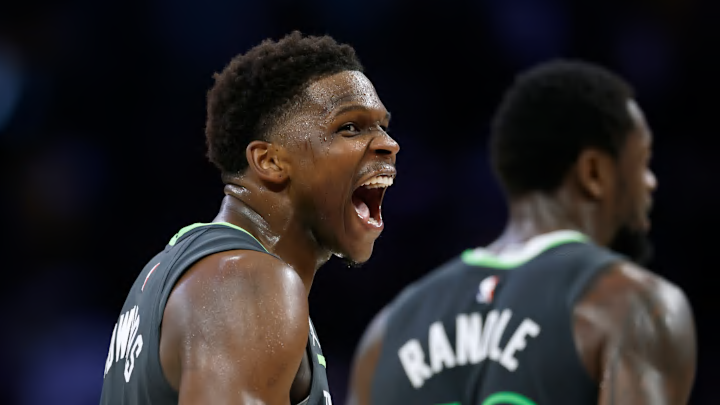Last season, the Minnesota Timberwolves posted a disappointing 10-10 record through the first 20 games. Similarly, the Wolves were just 22-20 through 42 games. The Wolves finished the season with a 49-33 record, good for sixth in the West. This included a 17-4 stretch in the final 21 games. Nevertheless, the Wolves' slow start hurt their place in the West.
Much of the Wolves' struggles were due to integrating Julius Randle and Donte DiVincenzo following a blockbuster trade just days before the start of training camp. After the Wolves' impressive end to the season and playoffs, we know this core can be successful at a high level. Now, without having to integrate new players, the Wolves should avoid a slow start.
In 2022-23, following the Rudy Gobert trade, Minnesota likewise started the season with a 10-10 record through 20 games and a 19-21 record through 40. However, after Gobert was integrated with the core, the Wolves posted a stellar 16-4 record through 20 games, and 29-11 through 40 games. Ultimately, this led to the Wolves winning 56 games, the second-best mark in franchise history, and they made their first conference finals since 2004.
The Wolves' continuity will be a key advantage early
The Wolves lost Nickeil Alexander-Walker in free agency. However, they re-signed Julius Randle and Naz Reid, while not making any other major moves. As a result, the Wolves' core largely remains the same, and now that they are used to each other, it's fair to expect that they start the season strong.
During media day, Anthony Edwards referred to the Wolves keeping their core intact while other West teams made big changes as a "cheat code," especially early. Chris Finch offered a somewhat different perspective, saying that "continuity is only good if it pays dividends early."
Undoubtedly, the Wolves' familiarity early will be a key advantage, especially as teams like the Houston Rockets, Denver Nuggets, and Los Angeles Clippers all made changes. However, to Finch's point, the Wolves will have to maximize this advantage early. Continuity will be less of an advantage as these teams become more comfortable with each other. Luckily, the 2023-24 season serves as evidence that the Wolves can avoid a slow start with a core that is more used to each other.
Overall, while a slow start plagued the Wolves' regular season last year, it's far too early to expect the opposite to be true this time around. The Wolves prioritized their continuity all offseason long, and it feels primed to benefit them early on this season.
